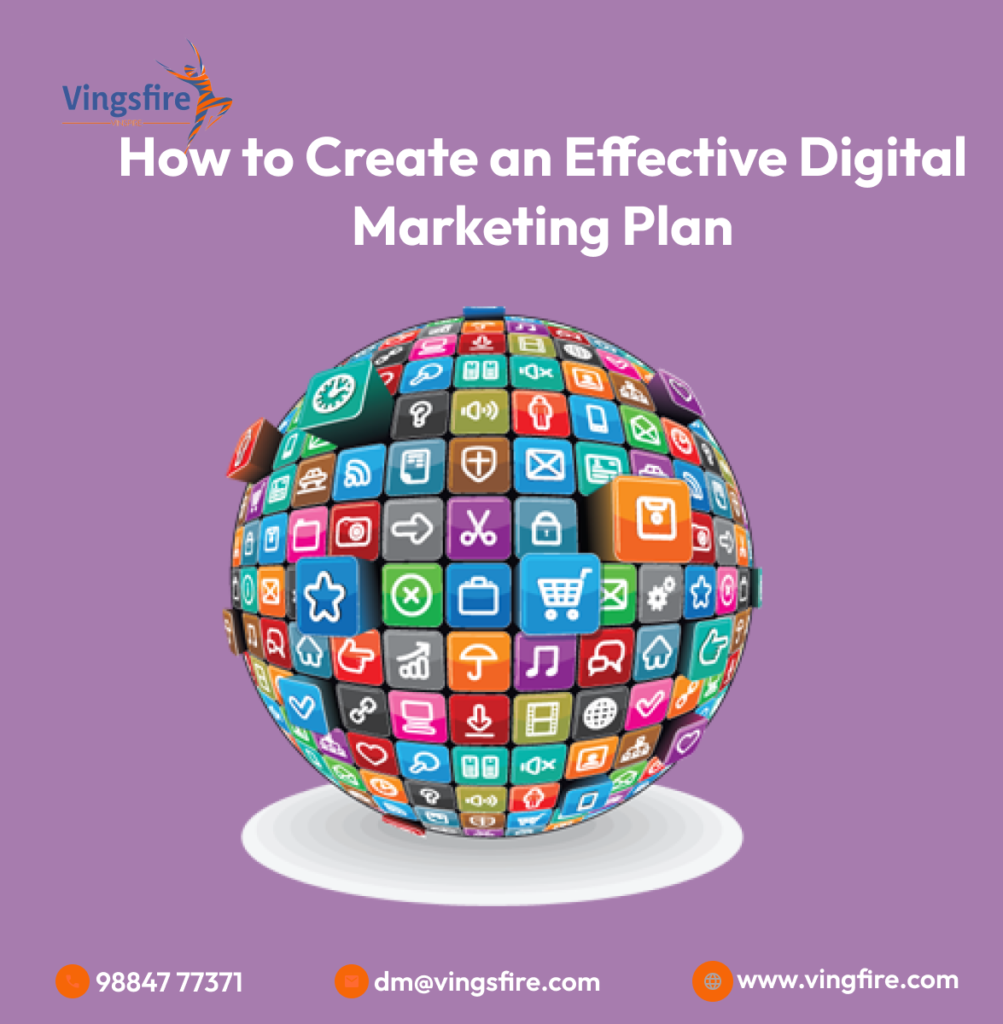
In today’s rapidly evolving digital landscape, crafting an effective digital marketing plan is essential for businesses looking to thrive and stay ahead of the competition. With the ever-increasing reliance on digital platforms for communication, entertainment, and commerce, a well-thought-out marketing strategy can make all the difference in reaching and engaging your target audience. In this comprehensive guide, we will delve into the key steps and strategies involved in creating a successful digital marketing plan that maximizes your online presence and drives results.
Understanding the Basics of Digital Marketing
Before diving into the specifics of creating a digital marketing plan, it’s crucial to have a solid understanding of what digital marketing entails. It encompasses a broad range of online tactics and channels aimed at promoting products or services, building brand awareness, and driving conversions. From search engine optimization (SEO) and social media marketing to email campaigns and content marketing, digital marketing encompasses a diverse set of strategies that leverage the power of the internet to connect with potential customers.
Identifying Your Target Audience
One of the foundational elements of any successful digital marketing plan is knowing your target audience inside and out. Understanding the demographics, interests, pain points, and online behavior of your ideal customers allows you to tailor your marketing efforts to resonate with them effectively. Conducting market research, analyzing customer data, and creating buyer personas are essential steps in gaining insights into your target audience’s preferences and needs.
Setting Clear and Measurable Goals
Digital marketing efforts should always be driven by clear, measurable goals that align with your overall business objectives. Whether your goal is to increase website traffic, generate leads, boost sales, or enhance brand awareness, setting specific, achievable goals provides a roadmap for your marketing strategy. Additionally, establishing key performance indicators (KPIs) allows you to track the success of your campaigns and make data-driven decisions to optimize performance.
Choosing the Right Digital Marketing Channels
With a multitude of digital marketing channels available, choosing the right ones for your business can be overwhelming. From search engines like Google and Bing to social media platforms such as Facebook, Instagram, Twitter, and LinkedIn, each channel offers unique opportunities to reach and engage your target audience. Consider factors such as your target demographic, industry, budget, and marketing goals when selecting the most appropriate channels for your marketing efforts.
Crafting Compelling Content
Content lies at the heart of any successful digital marketing strategy. Whether it’s blog posts, videos, infographics, podcasts, or social media posts, high-quality, engaging content is essential for attracting and retaining the attention of your target audience. Your content should be informative, relevant, and valuable to your audience, addressing their needs and pain points while showcasing your expertise and unique selling proposition.
Optimizing for Search Engines (SEO)
In an increasingly competitive online landscape, ensuring that your website ranks prominently in search engine results is crucial for driving organic traffic and visibility. Search engine optimization (SEO) involves optimizing your website’s content, structure, and technical aspects to improve its visibility and relevance to search engines. From keyword research and on-page optimization to link building and mobile responsiveness, implementing effective SEO strategies can significantly enhance your website’s search engine rankings and attract qualified traffic.
Harnessing the Power of Social Media
Social media has become an indispensable tool for businesses looking to connect with their target audience, build relationships, and amplify their brand presence online. With billions of users active on platforms like Facebook, Instagram, Twitter, and LinkedIn, social media marketing offers unparalleled opportunities for reaching and engaging with potential customers. By creating compelling content, fostering community engagement, and leveraging advertising tools, businesses can leverage social media to drive traffic, generate leads, and increase sales.
Implementing Paid Advertising Campaigns
While organic methods like SEO and social media are essential components of any digital marketing strategy, paid advertising can provide an additional boost in visibility and reach. Platforms like Google Ads, Facebook Ads, and LinkedIn Ads offer highly targeted advertising options that allow businesses to reach specific demographics, interests, and behaviors. By carefully defining your target audience, setting clear objectives, and optimizing your ad campaigns for maximum effectiveness, paid advertising can deliver significant ROI and complement your organic marketing efforts.
Measuring and Analyzing Performance
A critical aspect of any digital marketing plan is the ability to measure and analyze the performance of your campaigns accurately. By tracking key metrics such as website traffic, conversion rates, engagement levels, and return on investment (ROI), you can gain valuable insights into the effectiveness of your marketing efforts and identify areas for improvement. Utilize tools like Google Analytics, social media analytics platforms, and marketing automation software to monitor performance metrics in real-time and make data-driven adjustments to optimize your strategy.
Continuously Iterating and Improving
Digital marketing is a dynamic and ever-evolving field, requiring businesses to adapt and innovate continually to stay ahead of the curve. By staying abreast of industry trends, monitoring competitor activities, and soliciting feedback from your audience, you can identify new opportunities and refine your marketing approach over time. Remember that success in marketing is not a one-time achievement but an ongoing process of testing, learning, and optimizing for better results.
Conclusion
Creating an effective digital marketing plan requires careful planning, strategic thinking, and ongoing optimization. By understanding your target audience, setting clear goals, choosing the right channels, creating compelling content, and leveraging data-driven insights, you can develop a marketing strategy that drives meaningful results for your business. Keep experimenting, learning from your experiences, and adapting to changes in the digital landscape to stay ahead of the competition and achieve long-term success in the digital realm.


